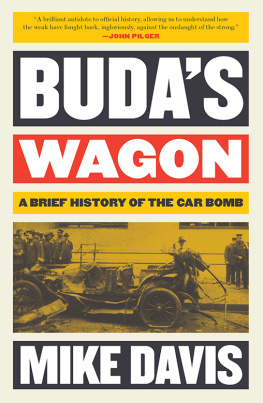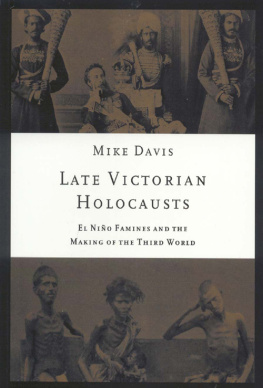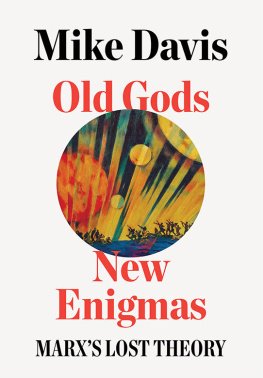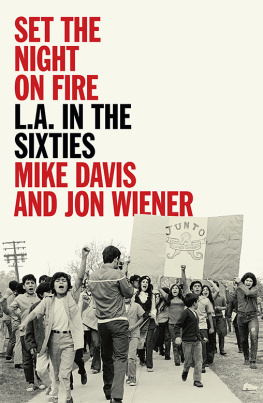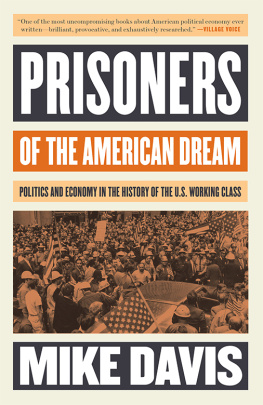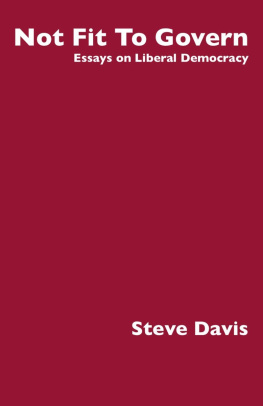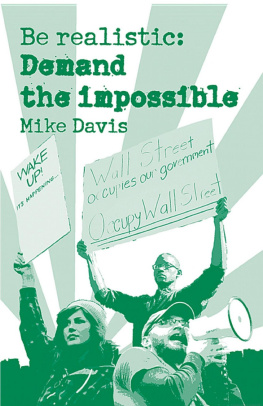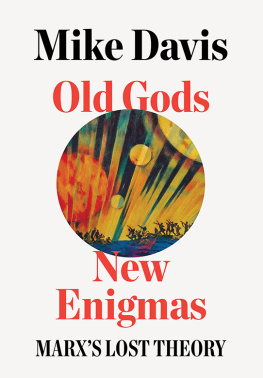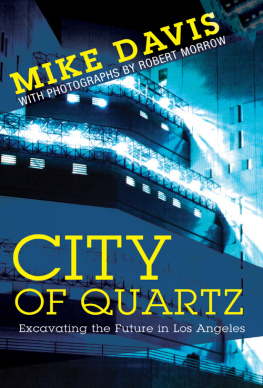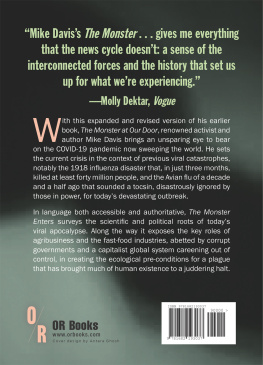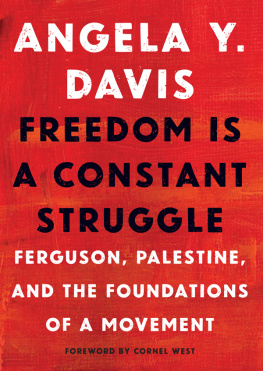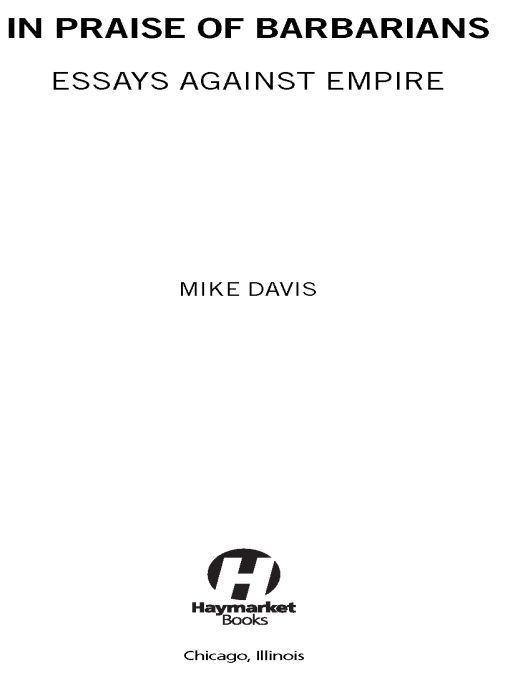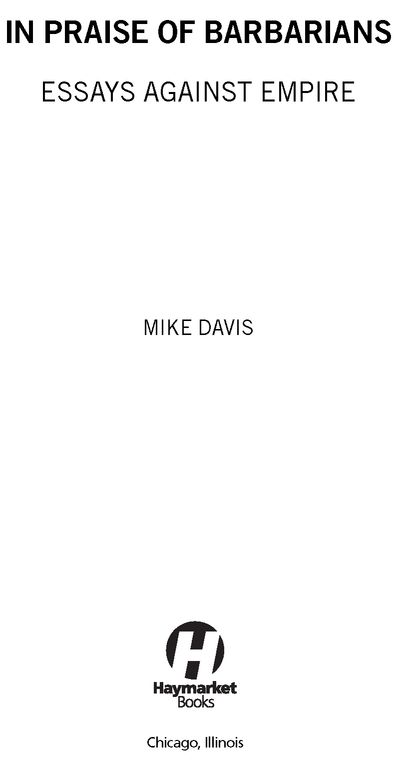Table of Contents
AUTHORS NOTE:
To save space and a few trees, citations are expressed as numbered references to the more important sources as listed in the bibliography at the end of the book. Many of these pieces were originally published in simultaneous versions on Tomdispatch.com (New York) and Socialist Review (London). I am very grateful to Tom Engelhardt and Pete Morgan and the rest of the SR crew for their support and collaboration.
In memory of Michael Zinzunfreedom fighter
Youre a real Karl Marx, you are! the squadrons military commissar said to him in the evening. What the hell are you writing there?
I am describing various thoughts in accordance with the oath I have taken, Khlebnikov answered
Isaac Babel, The Red Cavalry (1926)
PART ONE
ROMANS AT HOME
Augustus was sensible that mankind is governed by names; nor was he deceived in his expectation, that the Senate and people would submit to slavery, provided they were respectfully assured that they still enjoyed their ancient freedom.
Edward Gibbon, The Decline and Fall of the Roman Empire
ONE
THE END OF AMERICAN EXCEPTIONALISM
On an otherwise gorgeous morning in September, ordinary Americans suddenly became vulnerable to the consequences of the history that has been made in our name in the Middle East for the last sixty years. It was an apocalyptic day in the exact theological sense (according to the great Orthodox theologian E. Lampert) of a revelation that reveals the mysterious pathways of evil.(89) Suddenly, thanks to a complex history of oil, Zionism, and CIA ghost wars, the lives of thousands of New Yorkers were consumed in an inferno of volcanic grandeur and supernatural terror. In the most intimate and terrible way, we became citizens of a world where one atrocity is repaid with interest by another; where the price of oil is the slaughter of innocents.
No one, I think, has grasped the essence of this better than the left-wing Egyptian journalist Hani Shukrallah writing in Al-Ahram.(135) He focuses on what for him, as for several other writers, was the ultimate moral horror of the attack: four-year-old Juliana McCourt, cradled in the arms of her mother, as their plane careened into the World Trade Center (WTC). Who of us, he asks, could understand the anguish of her mother in those last moments? What monstrous politics uses little children as suicide weapons?
But Shukrallah also reminds us of another terrified and helpless child: twelve-year-old Mohammed al-Dorra. On a car-buying expedition with his father, this Palestinian sixth-grader was trapped in a gun battle with the Israeli Army. For almost an hour he cowered next to his father, before an Israeli sniperwith deliberate precisionshot and killed him. How many tears were shed or candles lit, wrote Shukrallah, in Britain, the U.S., or Germanyfor Mohammed al-Dorra and the thousands of other Palestinian children killed or maimed during the past year alone? Where was the sense of horror when Mrs. Albright, responding to a question about the five hundred thousand children that have died in Iraq as a result of U.S.-imposed sanctions, gruesomely stated that the cost, we think, was worth it?(135)
Shukrallahs point, obviously, is not to justify one childs murder by another; but to remind all his readers, Arabs as well as Americans, that empathythat innate capacity that makes us worthy of the self-designation humanmust be a consistent principle. Crimes against humanity are no less and no more terrible when they occur in a New York skyscraper, a Palestinian refugee camp, or an obscure Kurdish village. And a world, he warns, in which our choices are limited to Bush and bin Laden is a damned and doomed world of madness.
This is a world, of course, in which most ordinary people of both the Middle East and North America are little more than pawns. Despite what both Bush and bin Laden aver, the people and the empire are not synonyms for each other; I do not buy the claim, for example, that Americans have reaped what they have sown. The victims of the WTC massacrethe secretaries, accountants, deli delivery guys, window cleaners, stock analysts, and firefighterswere not the ones who designed and implemented our secretive, antidemocratic, and criminal policies in the Muslim world.
They did not overthrow the elected government of Mossadegh in Iran; support the genocide of eight hundred thousand leftists in Indonesia; intervene on behalf of the fascist Phalange against the Palestinians in Lebanon; fight a dirty war against Dhofarian insurgents; underwrite absolute monarchies like Saudi Arabia, the shah of Iran, Morocco, and the Gulf Emirates; build with billions of U.S. tax dollars the golden throne upon which Mubarak sits like a modern-day pharaoh; arm Saddam Hussein in the 1980s and turn a blind eye to his genocide against the communists and Kurds; then kill seventeen thousand Iraqi civilians in bombing raids during the Gulf War, including more than four hundred women and children incinerated in the Amariyah bomb shelter. Nor did they stir the Shias of southern Iraq into revolt, then abandon them to Saddam Husseins executioners because George Bush senior calculated that the total destruction of the regime would create an impermissible power vacuum that Iran might rush to fill.
Ordinary New Yorkers, likewise, did not blow an Iranian passenger jet out of the sky or kill Qadaffis baby daughter; secretly sell arms to Iran in order to fund mass murder in Central America; pin medals on Ariel Sharon, the butcher of Beirut; turn a blind eye to Israels continuing expropriation of Palestinian land; smile when Kuwait and other Gulf autocracies expelled four hundred thousand Palestinians; give Stinger missiles to Bulddadin Hikmatyar, a sadistic fanatic who made Afghanistan the worlds leading exporter of heroin; condone one military dictatorship after another in Pakistan; romance the Taliban in 1995-96 because Union Oil wanted to build a pipeline across Afghanistan; or blow up the pharmaceutical plant that was Sudans only source of antimalarial drugs.
Nor did three thousand missing New Yorkers partake in the sixty-year feast that U.S. oil giants, construction companies, and aerospace manufacturers have enjoyed in the Arabian peninsula. They did not bribe sheiks, wine and dine torturers, sell arms to murderers, sponsor terrorists in the name of combating terrorism, or subsidize religious bigots as long as they promised to kill secular leftists. Nor, in order to preserve their control over the world economy, have they prostituted the name of freedom to support the rule of billionaires over paupers.
Yet all this was done, and much more, in the name of American people. Made in the USA is the label on some of the most sinister episodes in the recent history of these ancient lands. I am not claiming that the United States is the prime mover of every evil and inequality in the Muslim world, the literal Great Satan excoriated in the prayers of fundamentalists. No, reactionary local ruling classes, in the last instance, are the ultimate enemies of democracy, feminism, minority rights, and social justice in the Arab and wider Muslim worlds. And British, French, and Brezhnevite imperialism, along with Israel, have also helped steal the dreams of the Arab masses.
But who can deny that the principal structural obstacle to any kind of progressive socio-economic change in this region has been the unholy but seemingly impregnable alliance between U.S. oil companies and arms manufacturers, right-wing Zionism, and the superrich ruling classes of the Arabian peninsula? Who believes that the House of Said or the playboy emirates of the Gulf would survive for a month without their U.S. military shield? Or that Israel could continue to colonize the West Bank if it faced a U.S. foreign policy that was just as committed to Palestinian as Israeli self-determination?


